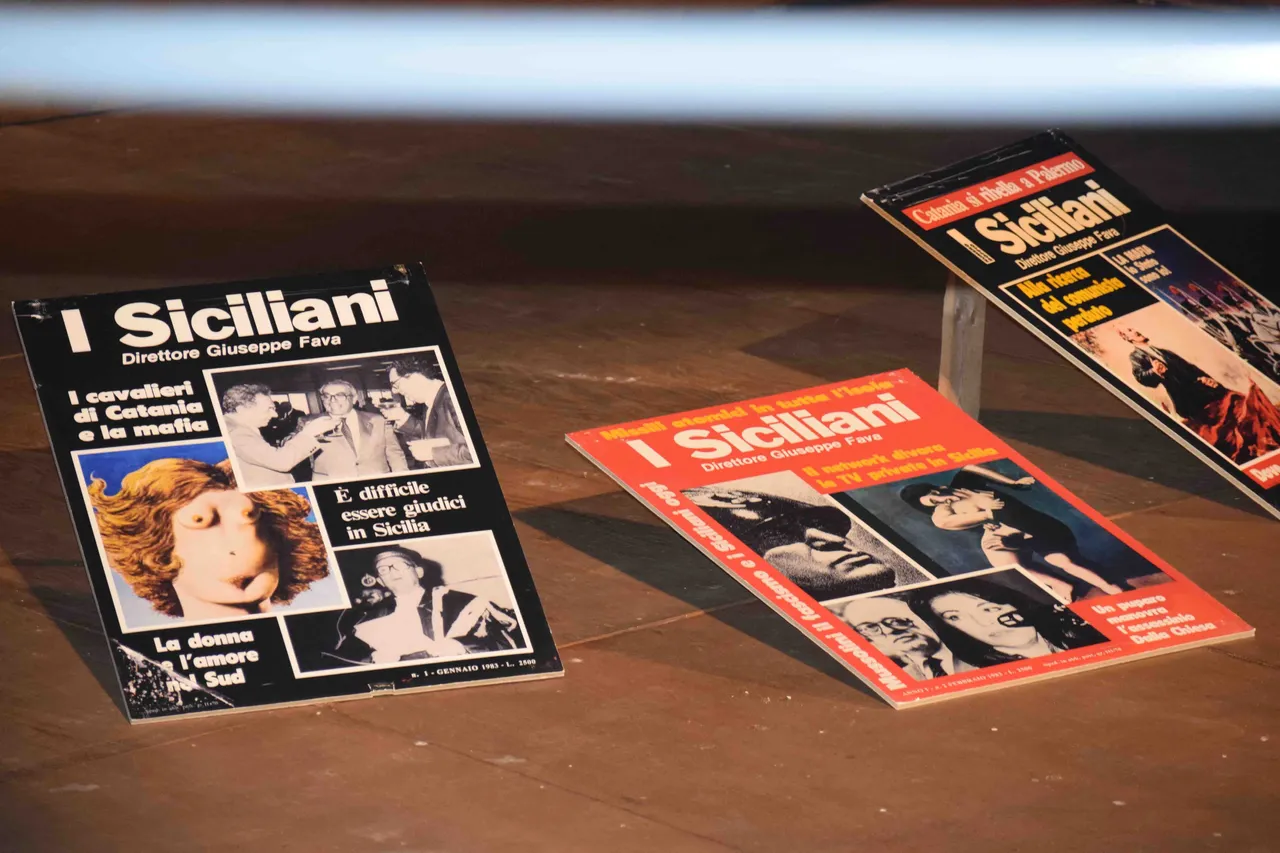Giuseppe Fava nacque a Palazzolo Acreide il 15 settembre 1925. Da sempre e per tutti Pippo, è stato uno dei migliori giornalisti e scrittori siciliani. Ha raccontato la mafia nelle sue sfaccettature e le commistioni pubblico-privato in cui essa s’infiltrava.
Sceneggiatore, saggista, drammaturgo ed anche abile disegnatore fu un artista a tutto tondo e testimone del nostro tempo.
Fu direttore di giornali (il Giornale del Sud) e soprattutto fondatore de “I Siciliani”, dove a capo di un manipolo di giovani giornalisti iniziò a pubblicare l’impubblicabile. Nomi e fatti che la Catania bene e non solo quella, non osava dire o pretendeva di non vedere.
Un attività che raccontava le cosche catanesi, le promiscuità con gli ambienti altolocati della città, i traffici di droga, l’investimento nelle attività lecite.
I Siciliani divenne certamente la prima rivista, mensile, definibile col termine, oggi forse abusato, “antimafia” in Italia.

foto dell'autore
Si occupava di svariati argomenti, noti sono gli articoli contro le basi americane in Sicilia, ma prediligeva le inchieste che divenivano vere e proprie denunce, sulle attività lecite ed illecite degli imprenditori locali. “I quattro cavalieri dell’apocalisse” come li definì Fava denunciavano le attività dei più grandi costruttori siciliani e i collegamenti coi boss. Note le fotografie pubblicate dove imprenditori, pubblici ufficiali, politici si facevano fotografare in occasioni di inaugurazioni di attività commerciali a fianco dei malavitosi.
Resiste a un tentativo di acquisto del giornale, probabilmente al fine di controllarne la linea editoriale, sempre in difficoltà economiche.
Il 28 dicembre del 1983 rilascia ad Enzo Biagi la sua ultima intervista su Rai Uno, Diceva a Biagi:
«Mi rendo conto che c'è un'enorme confusione sul problema della mafia. I mafiosi stanno in Parlamento, i mafiosi a volte sono ministri, i mafiosi sono banchieri, i mafiosi sono quelli che in questo momento sono ai vertici della nazione. Non si può definire mafioso il piccolo delinquente che arriva e ti impone la taglia sulla tua piccola attività commerciale, questa è roba da piccola criminalità (scassapagghiari), che credo abiti in tutte le città italiane, in tutte le città europee. Il fenomeno della mafia è molto più tragico ed importante…»
Otto giorni dopo, il 5 gennaio 1984 intorno alle 21,30 Fava venne ucciso. Assassinato di fronte al teatro Verga, il teatro stabile di Catania. Particolarmente cruda la scena che vide il sicario sparargli 5 colpi alla nuca.
La città fu per certi versi indifferente. Con numerose autorità e soggetti che minimizzarono sui motivi dell’omicidio, disconoscendone per molto tempo, il risvolto mafioso e attribuendolo a problemi di carattere sentimentale e poi di difficoltà economica del giornale.
Solo nel 1998, in primo grado furono condannati esecutori e mandanti, confermati poi in appello nel 2001, ad eccezione di due imputati.
Infine la Cassazione nel 2003 definisce la questione confermando le condanne per l’esecutore e il mandante.
Giuseppe Fava was born in Palazzolo Acreide on 15 September 1925. Always and for all Pippo, he was one of the best Sicilian journalists and writers. He told the mafia in its facets and the public-private mixtures in which it infiltrated.
Scriptwriter, essayist, playwright and also skilled draftsman was an all-round artist and witness of our time.
He was editor of newspapers (the Giornale del Sud) and above all the founder of "The Sicilians", where at the head of a handful of young journalists he began publishing the unpublishable. Names and facts that Catania well and not only that, did not dare say or pretended not to see.
An activity that told the catanesi cosche, promiscuity with the high-end environments of the city, drug trafficking, investment in lawful activities.
The Sicilians certainly became the first magazine, monthly, definable with the term, today perhaps abused, "anti-mafia" in Italy.
He dealt with various topics, known as the articles against the American bases in Sicily, but he preferred investigations that became real complaints, on the illegal and illicit activities of local entrepreneurs. "The four horsemen of the apocalypse" as Fava called them denounced the activities of the greatest Sicilian builders and the connections with the bosses. Notes the photographs published where entrepreneurs, public officials, politicians were photographed on the occasion of inauguration of commercial activities alongside the criminals.
He resists an attempt to purchase the newspaper, probably in order to control its editorial line, always in financial difficulty.
On December 28, 1983, he gave Enzo Biagi his last interview on Rai Uno, Diceva a Biagi:
«I realize that there is a huge confusion about the problem of the Mafia. The mafiosi are in Parliament, the mafia are sometimes ministers, the mafia are bankers, the mobsters are those who are at the top of the nation right now. You can not define mafioso the little delinquent that comes and imposes you the size on your small business, this is a small crime stuff (scassapagghiari), which I believe lives in all Italian cities, in all European cities. The phenomenon of the mafia is much more tragic and important ... »
Eight days later, on 5 January 1984, around 9.30 pm Fava was killed. Assassinated in front of the Verga theater, the permanent theater of Catania. Particularly harsh the scene that saw the hitman shoot him 5 shots in the back of the head.
The city was in some ways indifferent. With numerous authorities and subjects that minimized the reasons for the murder, disregarding for a long time, the mafia implication and attributing it to problems of sentimental character and then of economic difficulty of the newspaper.
Only in 1998, in the first instance were executed executors and principals, then confirmed in appeal in 2001, with the exception of two defendants.
Finally, the Cassation in 2003 defines the issue by confirming the convictions for the executor and the principal.